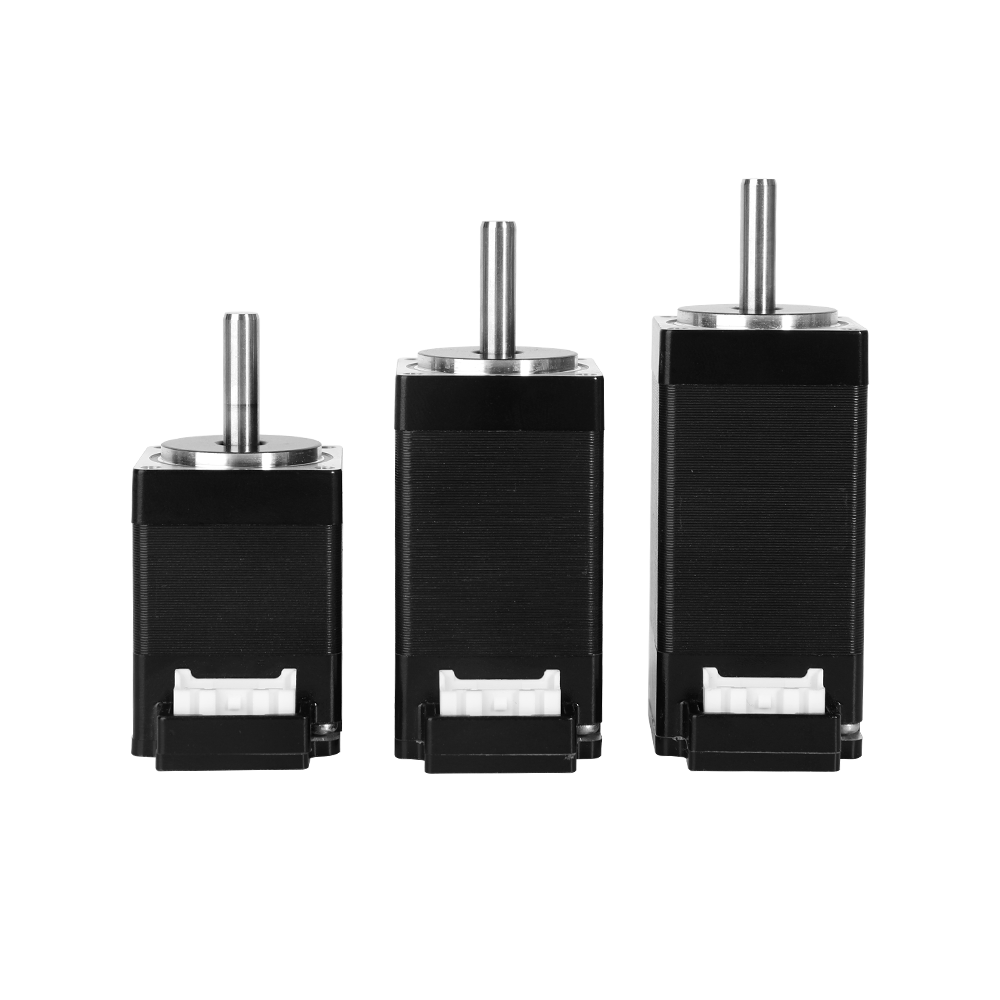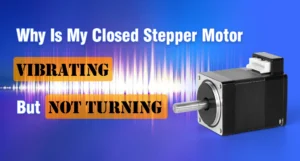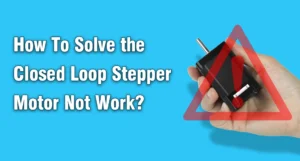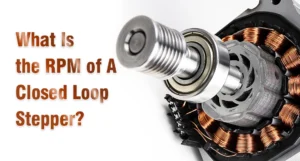In the realm of precision motion control, closed loop stepper motors have emerged as a game-changer, offering a unique blend of accuracy and reliability. This blog aims to provide a comprehensive understanding of closed loop stepper motors, covering key aspects such as their definition, sizes, types, applications, reasons behind their widespread use in various applications, and future trends.
What is a Closed Loop Stepper Motor?
A closed loop stepper motor, also referred to as a servo stepper motor, represents a technological advancement over traditional open loop stepper motors. Unlike open loop systems that operate without feedback, closed loop stepper motors incorporate feedback mechanisms, typically in the form of encoders, to monitor and adjust the motor’s performance in real-time. This feedback mechanism constantly monitors the motor’s performance, allowing for real-time adjustments. This feature enables precise control and positioning, making closed loop stepper motors an ideal choice for applications where accuracy is paramount.

Closed Loop Stepper Motor Size
Closed loop stepper motors come in a range of sizes, catering to diverse application needs. From compact NEMA 17 motors suitable for intricate tasks to larger NEMA 23 or NEMA 42 motors designed for more robust applications, the choice of motor size depends on factors such as torque requirements, speed, and spatial constraints.
Closed Loop Stepper Motor Types:
Several types of closed loop stepper motors are available, each tailored to specific application demands. Some common types include:
- Bipolar Closed Loop Stepper Motors: Known for their high torque capabilities, bipolar motors with two coils are widely used in applications requiring strong and precise movements.
- Unipolar Closed Loop Stepper Motors: Featuring multiple coils, unipolar motors provide smoother motion and are favored in applications where precision is crucial.
- Hybrid Closed Loop Stepper Motors: Combining features of both bipolar and unipolar motors, hybrids strike a balance between torque and smooth motion, making them versatile for various applications.

Why Use Closed Loop Stepper Motors?
The adoption of closed loop stepper motors is driven by several advantages that cater to the demands of modern automation:
Improved Precision: The closed loop system continuously monitors and corrects the motor’s position, resulting in enhanced precision and accuracy in motion control.
Reduced Heat Generation: Unlike open loop systems prone to overheating, closed loop stepper motors operate more efficiently, minimizing heat generation and ensuring prolonged performance.
Increased Reliability: The feedback mechanism in closed loop systems enhances reliability by detecting and correcting errors, ensuring consistent and dependable performance.
Energy Efficiency: Closed loop stepper motors optimize energy usage by adjusting power consumption based on the actual load requirements, contributing to overall energy efficiency.
Applications of Closed Loop Stepper Motors
Closed loop stepper motors find applications across various industries where precise control and reliable performance are critical. Some notable applications include:
CNC Machines: Closed loop stepper motors are widely used in CNC (Computer Numerical Control) machines for tasks such as milling, cutting, and engraving. Their ability to provide accurate positioning makes them invaluable in achieving intricate designs.
3D Printing: The world of additive manufacturing benefits from the precision of closed loop stepper motors. They play a crucial role in controlling the movement of the print head and ensuring the layers are deposited accurately.
Robotics: In robotic systems, closed loop stepper motors contribute to precise movement control in joints and actuators. This precision is essential for tasks ranging from pick-and-place operations to intricate surgical procedures in medical robotics.
Automation Systems: Closed loop stepper motors are integral components in various automated systems, including packaging machinery, conveyor systems, and assembly lines. Their reliability and accuracy enhance overall system efficiency.
Laboratory Equipment: Instruments in research and analytical laboratories often utilize closed loop stepper motors for tasks such as sample handling, positioning of optics, and fluid dispensing due to their accuracy and repeatability.
Choosing the Right Closed Loop Stepper Motor:
Selecting the appropriate closed loop stepper motor involves considering several factors, including:
- Torque Requirements: Assess the torque needed for your application, factoring in both static and dynamic loads.
- Speed: Determine the required speed for your application, keeping in mind acceleration and deceleration considerations.
- Physical Size Constraints: Consider the available space for installing the motor and choose a size that fits within the designated parameters.
- Feedback Resolution: The resolution of the feedback system, often provided by encoders, influences the motor’s precision. Higher resolution is beneficial for applications demanding finer control.
- Environmental Conditions: Evaluate the environmental conditions in which the motor will operate, including temperature and humidity, to ensure compatibility.
Future Trends in Closed Loop Stepper Motors
As technology continues to advance, closed loop stepper motors are likely to witness further innovations. Some anticipated trends include:
Integration with Smart Systems: Closed loop stepper motors may be integrated into smart systems, leveraging IoT (Internet of Things) capabilities for remote monitoring and control.
Enhanced Connectivity: Integration with industrial communication protocols may become more prevalent, facilitating seamless integration into larger automation networks.
Improved Energy Efficiency: Ongoing efforts to enhance energy efficiency in all aspects of automation may lead to further optimization of closed loop stepper motors in terms of power consumption.
Closing Thoughts
Closed loop stepper motors have undeniably transformed the landscape of motion control, providing a level of precision and reliability that meets the demands of modern automation.
Whether in manufacturing, robotics, or other industries, these motors continue to be at the forefront of technological advancements, driving innovation and efficiency. As industries evolve, so too will the capabilities of closed loop stepper motors, solidifying their role as a cornerstone in the realm of automation.






